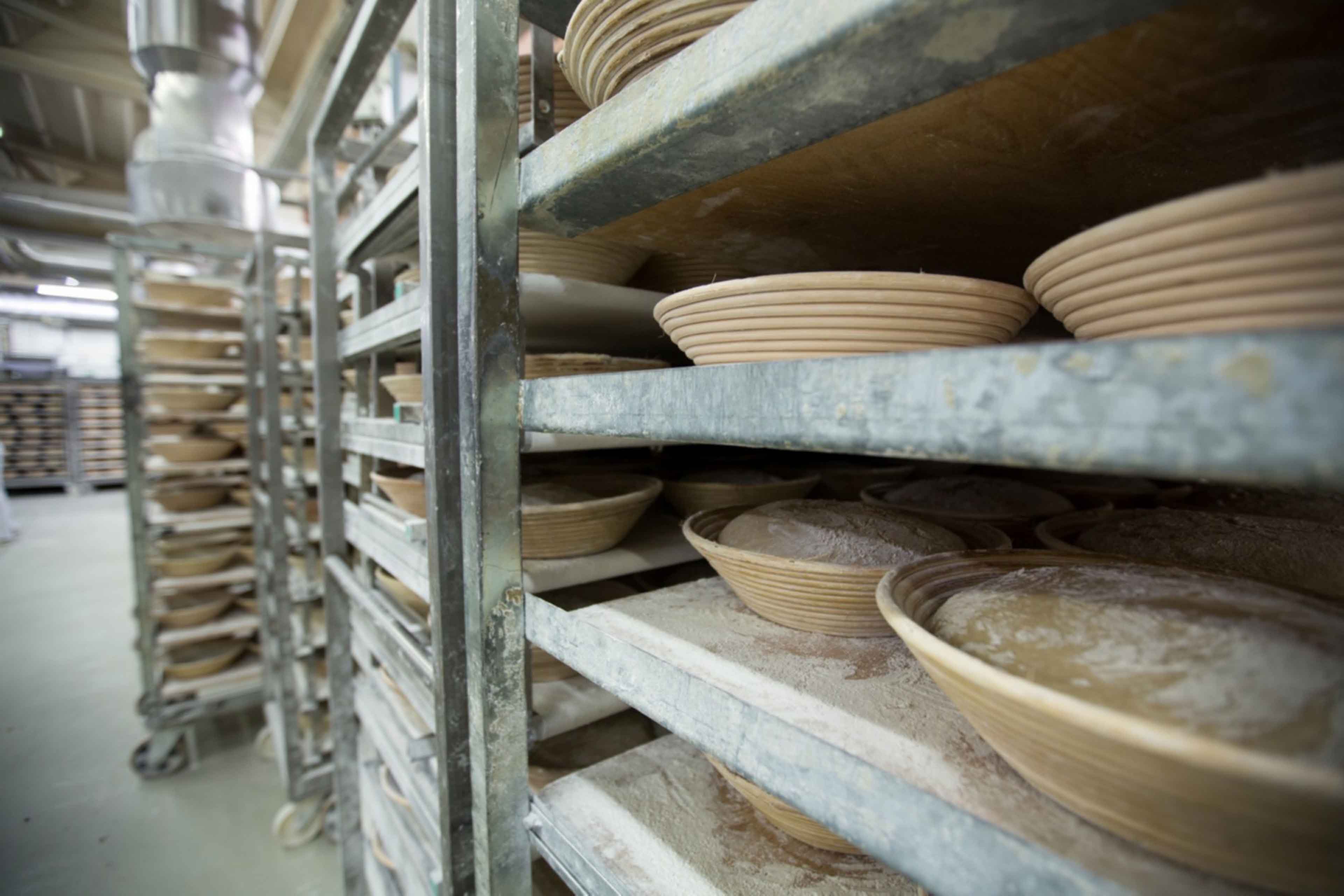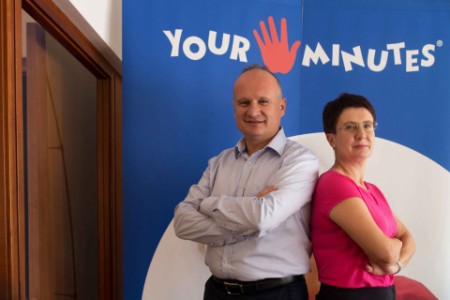Raw materials ordered from the faculty payphone
In the 1990s, Slovenia was bursting with a new entrepreneurial spirit. It also gripped the Mozetič family, who already had a specific idea. In 1993, full of youthful energy and passion, Alenka and Aleš embarked on the production of American doughnuts in Slovenia. With the support of their parents, they set themselves a clear vision of growth and development that went beyond the local artisan activity of managing a small bakery in Metlika. “It was a ‘guerrilla’ time, when we searched for raw materials using the payphone outside the Faculty of Economics,” remembers Alenka of the beginning, when she and her brother learned the business principle of ‘learning by doing’.
As the company continued to grow, it was important to raise its profile, and in 1999 the "Tvojih pet minut" brand was created. Only 11 years after its establishment, the company was given a Bronze Slovenian gazelle award in recognition of its rapid growth. Expansion into neighboring markets soon followed. As early as 2003, a plant was established in Croatia; five years later the company focused on the Serbian market; and in 2010 the markets of Bulgaria, Bosnia and Herzegovina and Montenegro followed. “In 2004 and 2005 we tried to penetrate the European Union market. Unfortunately, we found that this was impossible and so we again turned our attention to the south,” explains Alenka regarding the regional aspect of their market strategy. “Every company must define its own market. Our business is industrial bakery and we must achieve the same degree of industrialization as the global players,” explains Aleš. Thus, in April of this year, the company acquired the Pekarna Grosuplje business from Mercator.

24 hours a day, 7 days a week
Forward planning and flexibility are the core values that define their entrepreneurial approach and reflect the demands of the baking industry. “When you work seven days a week and production is running almost 24 hours a day, you experience it all in a single day: you receive the order, make the product, and deliver it to the client. In our industry sector, everyone is continuously in motion,” smiles Alenka. Last year the company broke the limit of €68 million in turnover and generated €8 million of profit. Their production facilities are located in Slovenia, Croatia and Serbia, while their frozen products are distributed to Bulgaria, Montenegro, Bosnia and Herzegovina and Albania. “Aleš has successfully integrated into the Serbian business environment. He understands their logic and expectations, while I have become more focused on internal processes and support,” explains Alenka of the division of labour. In 2014, the Group employed 1,300 staff which has risen to 1,500 in 2015 after the acquisition of Pekarna Grosuplje.
If you don't study hard, you will end up working with a deep fat fryer
When you are a part of a family business, it is important to strike the right balance between work and family life. “You can be successful if you know that you have the support of your family, as it is the family that gives you the strength to overcome new challenges,” thinks Alenka. One of the key success factors is that Alenka and Aleš are a well-tuned team. Although they work individually, each covering their own area of expertise, there is a confidence in each other that they share. “This confidence originates from the fact that we are a family,” explains Alenka.
They do not burden their children with the requirements of the family business; instead their expectations are similar to those of every parent. Aleš sometimes likes to tease the children: “If you don't study hard, you will end up working with a deep fat fryer.” Over the years they have both tried to transfer to them certain entrepreneurial values such as independence and resourcefulness. “No business event is perceived as a problem; instead we see it as a challenge, which we approach in a way that ensures a long-term solution,” explains Alenka. They both introduced certain family values into their business; perhaps the most prominent of all is open communication, with fewer reservations and restraints.
“You can be successful if you know that you have the support of your family, as it is the family that gives you the strength to overcome new challenges,” thinks Alenka.
Two million doughnuts are sold during the Shrove Tuesday carnival festivities
Bakery is a strongly generic sector and anyone can make a bread roll. Thus, every successful baker needs to be innovative to become a source of interest for traders. Even more important than development and new technology, are the sales. “All the bakeries that we have acquired had excellent bakers and products. However, we aim not only to be first-class bakers, but also an excellent, high-performing sales team. And this is where our advantage lies,” points out Alenka. Based on good partnership relations with tradespeople, the company has raised marketing to a higher level by including traders in their success story. “We succeeded in extending the Shrove Tuesday carnival celebrations from a single day to 14 days. Thanks to our company, two million doughnuts are sold during carnival time.”
Although this is an industrial bakery, it complies with the highest quality and health standards. “Quality depends on the raw materials and preparatory process rather than the production. Thus, we are continually improving the bread and morning goods preparation and not using any artificial substances or additives,” explains Aleš. According to him, in terms of technology, Pekarna Grosuplje is at the very forefront of the European market. “We take the long-term perspective. We focus not only on turnover, but also on quality and people. We recognize growth as a kind of challenge,” says Alenka when describing their business. One such challenge was the Serbian market where the company had no resources other than production. Everything they developed at home, they transferred (standards included) to foreign markets. Only subsequently, through takeover of other bakeries, have they obtained sufficient human resources to set up a well-arranged organization with clear job tasks.
Transfer of knowledge within the region
When expanding their business, the Mozetič family team broke the expected financial framework of a family business and raised loans to fund their growth. The company successfully deleveraged through capital injection and an ownership share of a Finnish pension fund. Subsequent to the capital increase and restructuring, the Finish pension fund will become the owner of a 40% interest in the company, while the remaining 60% will continue to be in the ownership of the Mozetič family. In future they plan new acquisitions and takeovers. “Integration of the bakery sector is inevitable in order to ensure stability, high quality and competitive advantage,” states Aleš confidently. One good example is Pekarna Grosuplje where the new owners continued with the production and further development of the original products. “The fact is that there is little else we can transfer between the countries but knowledge,” concludes Alenka.
Summary
Don Don in a nutshell: “First-class bakers and exceptional sales team.”


